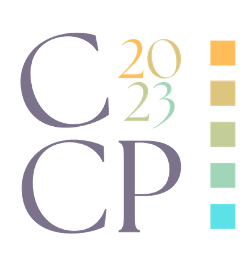
free us/them all:
advocating for a legal pedagogy with
trauma-informed lawyering
shivani parikh
A trauma-informed legal practice aims to reduce re-traumatization and recognize the role trauma plays in the lawyer-client relationship. The four key characteristics of trauma-informed lawyering are: identifying trauma, adjusting the attorney-client relationship, adapting litigation strategy, and preventing vicarious trauma. Integrating trauma-informed practices provides 1 lawyers with the opportunity to increase connections to their clients and improve advocacy. For lawyers working with indigent clients, these clients are often facing precarious conditions in multiple overlapping aspects of their lives – housing, employment, child custody, immigration, and even experiences with gender-based violence. In order to be effective advocates, it is critical that lawyers recognize their role as individuals who may be the first person to hear and validate stories that have been disregarded or disrespected by those from other systems that they’ve told before – police officers, case managers, school administrators, etc.
There is a growing but underdeveloped commitment in the legal profession to interdisciplinary understandings of liberation and the necessity for articulated abolitionist solidarity. This has resulted in lawyers largely contributing to the stigmatization of mental health, the endorsement of controlling and punitive notions of psychiatric options, and the legitimization of the growing carceral apparatus often built upon the welfare state. This seems to stem from a lack of attorneys who have lived experiences with court-mandated restrictions on their autonomy but more broadly from their inability to feel a sense of solidarity and moral obligation to individuals they work with who are experiencing mental health crises.
Law students must have an obligation to co-creating norms and practices which build upon existing clinical pedagogical literature on therapeutic jurisprudence, empathy and emotional intelligence, and vicarious trauma. For me, this is rooted in having worked at the Center for Safety & Change in between graduating from college and starting law school as well as volunteering as the Vice President of University Chapters at MannMukti. I was the Outreach Coordinator to Asian Communities in the education & outreach department at the Center for Safety & Change, which was the only nonprofit and direct services provider for victims and survivors of gender-based violence in Rockland County, NY. The trauma of abuse for both the survivors as well as any children involved can be then exacerbated by the re-traumatization inherent in other possible events and factors such as: disclosing the nature of the abuse to attorneys, in court, to mental health providers (some of which may not be a good fit and the long process of finding an aligned therapist), and in the event that they have to share custody or even lose custody of children to the parents of their abuser. Though I did not work with the legal team there, my role still emphasized understanding the fears and anxieties of those who may be calling the helpline and attending public programming but not disclosing at that time that they are victims or survivors. It was critical to have a sensitive and supportive approach when centering their ability to feel empowered to leave or escape, heal, and find stability in their new circumstances.
My time with MannMukti, a South Asian remotely volunteer-led mental health nonprofit, was shaped largely by conversions about shaping the foundations, programming, and inevitable interpersonal dilemmas present for college students who were establishing chapters of our organization at their campuses. The chapters’ overall mission and vision were to create trustworthy peer support networks that were grounded in a nonjudgmental cultural recognition of how many of us were raised to instinctively dismiss the ways brown bodies held psychosomatic pain.
As a current law student, serving as a helpline volunteer for Sakhi for South Asian Women (see also Khandelwal, 1997) and my semester as an intern with the Immigration Intervention Project at Sanctuary for Families cemented my belief that the academy too readily presumes that people dedicated to public interest work must be inherently trauma-informed or prepared to make a commitment to learning how to be. The conversations that are permitted and centered tend to emphasize abstract notions of professionalism (how white-collar clients at firms should be responded to) as “universal standards” and that lawyers’ vicarious trauma is a more urgent concern. An abolitionist vision necessitates that tangible racial justice and civil rights for all, regardless of neurotypicality and ability, do not dismiss our clients’ trauma as natural outcomes of their marginalization, but rather demand that our educators, employers, and colleagues be advocates for truly reparative and restorative outcomes.

Shivani Parikh is a Stein Scholar, REAL Scholar, Crowley Scholar, and J.D. candidate at Fordham Law School. She is a racial justice and civil rights advocate for South Asian Americans. She is committed to trauma-informed movement/community lawyering that expands immigrants’ rights, curtails the War on Terror’s surveillance project, and provides legal support for marginalized and disenfranchised Desi families who are building power. Find her on Twitter @browngirlrising.

Leave a Reply